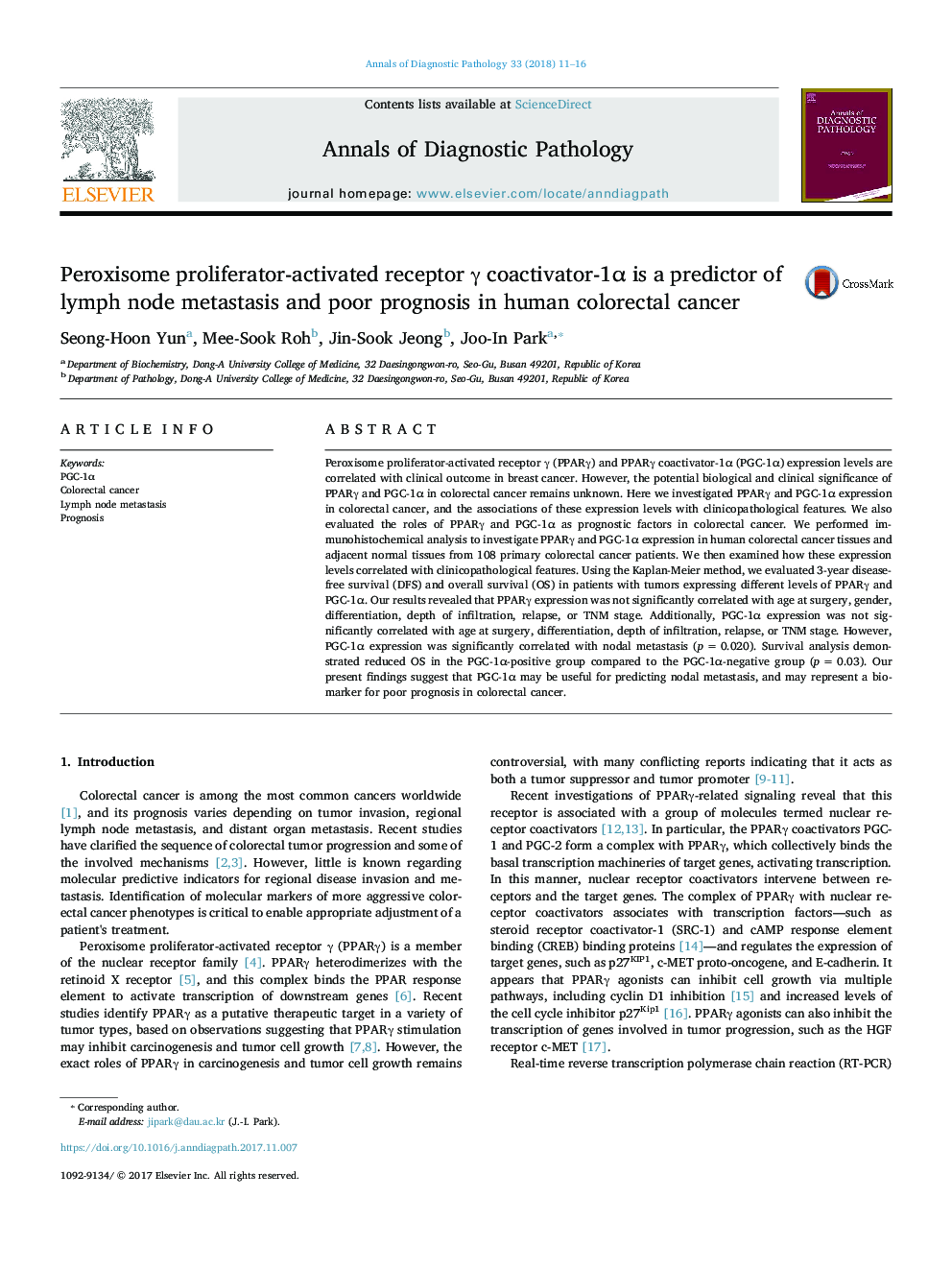| Article ID | Journal | Published Year | Pages | File Type |
|---|---|---|---|---|
| 8807192 | Annals of Diagnostic Pathology | 2018 | 6 Pages |
Abstract
Peroxisome proliferator-activated receptor γ (PPARγ) and PPARγ coactivator-1α (PGC-1α) expression levels are correlated with clinical outcome in breast cancer. However, the potential biological and clinical significance of PPARγ and PGC-1α in colorectal cancer remains unknown. Here we investigated PPARγ and PGC-1α expression in colorectal cancer, and the associations of these expression levels with clinicopathological features. We also evaluated the roles of PPARγ and PGC-1α as prognostic factors in colorectal cancer. We performed immunohistochemical analysis to investigate PPARγ and PGC-1α expression in human colorectal cancer tissues and adjacent normal tissues from 108 primary colorectal cancer patients. We then examined how these expression levels correlated with clinicopathological features. Using the Kaplan-Meier method, we evaluated 3-year disease-free survival (DFS) and overall survival (OS) in patients with tumors expressing different levels of PPARγ and PGC-1α. Our results revealed that PPARγ expression was not significantly correlated with age at surgery, gender, differentiation, depth of infiltration, relapse, or TNM stage. Additionally, PGC-1α expression was not significantly correlated with age at surgery, differentiation, depth of infiltration, relapse, or TNM stage. However, PGC-1α expression was significantly correlated with nodal metastasis (p = 0.020). Survival analysis demonstrated reduced OS in the PGC-1α-positive group compared to the PGC-1α-negative group (p = 0.03). Our present findings suggest that PGC-1α may be useful for predicting nodal metastasis, and may represent a biomarker for poor prognosis in colorectal cancer.
Related Topics
Health Sciences
Medicine and Dentistry
Pathology and Medical Technology
Authors
Seong-Hoon Yun, Mee-Sook Roh, Jin-Sook Jeong, Joo-In Park,
